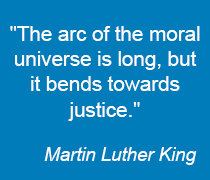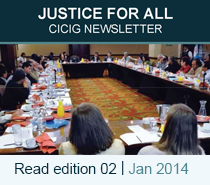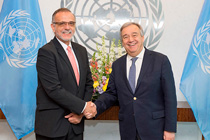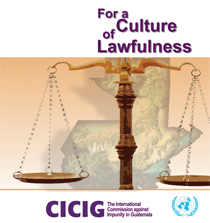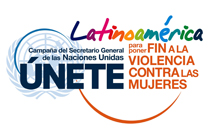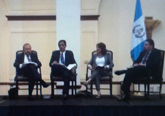 Guatemala, February 28, 2012. Within the framework of the forum recently organized by Alternativa Independiente, Francisco Javier Dall'Anese Ruiz (head of the International Commission against Impunity in Guatemala) and various guests discussed "Organized crime and the justice system".
Guatemala, February 28, 2012. Within the framework of the forum recently organized by Alternativa Independiente, Francisco Javier Dall'Anese Ruiz (head of the International Commission against Impunity in Guatemala) and various guests discussed "Organized crime and the justice system".
Also participating in the event were Haroldo Vásquez, President-elect of the Association of Judges, Arabella Castro, former Registrar General of Property, and Mynor Oxom, the Public Prosecutor for Economic Crimes of the Public Prosecutor’s Office (MP).
In his remarks, the Commissioner defined organized crime as a group with a three or more person structure acting in concert to commit one or more egregious crimes or to commit crimes to directly or indirectly obtain economic or material gains.
"Organized crime is a business with exactly the same structure as a legal enterprise but with illegal aims and means. The bosses of such groups are ‘businesspersons’ who are unscrupulous when it comes to earning large fortunes illegally (...). These businesses have partners, mid-level management, a board, distributors, retail, and they are very similar to a legal enterprise," underlined the Commissioner.
"Organized crime is a business with exactly the same structure as a legal enterprise but with illegal aims and means. The bosses of such groups are ‘businesspersons’ who are unscrupulous when it comes to earning large fortunes illegally."
Francisco Javier Dall'Anese Ruiz
CICIG Commissioner
The Commissioner said the State must work to limit the possibilities of organized groups and not consider them invisible, because that is the only way to defeat them, guarantee the security of honest citizens, and allow them to go about their lives free of concerns.
The Commissioner added: "If the State fails to collect taxes or meet society's needs and does not provide public services or opportunities for people to progress, organized crime comes along and offers people everything that the Government could not. In such a scenario, who are people going to listen to?"
The Commissioner went on to say a prosecution policy must be promoted to fight such groups and prioritize the cases, because not all cases can be addressed in the same way. "Political decisions must be taken, regardless of the criticisms; however, the Attorney General must prioritize certain cases over others. The law allows the MP to settle low-impact cases through alternative channels, such as conciliation,” he said.
Offences against property
In relation to property crimes, the Commissioner stated that there are a large number of criminal organizations comprised of notaries who "revive the dead and allow them to attend judicial proceedings. Some groups of notaries are true organizations that forge documents, and there are judges who systematically rule in favor of certain people."
It is the Commissioner's belief that judges must ensure that honest individuals do not lose their property to criminals: "The accounts of judges must be reviewed to verify the existence of unjustifiable increases."
He added that any criminal organization would commit property crimes because, at some moment, they have to launder money from their illegal businesses. Once the money allocated to the illegal business operation has been separated, the rest must be legitimized: "To legitimize these funds, they must bribe officials in order to obtain necessary authorizations and permits, to build businesses and to open commercial premises."
Arabella Castro, former Registrar General of Property, believes organized crime related to usurping property requires a notary, many of whom actively participate in profitable ventures knowing of their illegality.
She explained that the majority of usurpations are committed using false identities and the elderly are often victims of such property scams. Another variety of fraud is that involving the dismemberment of properties or the construction of condominiums, which are then registered in the Property Register to be sold illegally.
"Committing these illicit acts is an earthly paradise for organized crime, in a country where the institutions are weak (...). When I worked in the Property Registry, we knew who led mafia of notaries, and over the course of four years, more than one thousand complaints were filed, but when people were detained, judges failed to comprehend the fraud and let the accused go free," she explained.
"The judges have not grasped what the mafia and organized crime are, and through their decisions, they facilitate the impunity of cases." Therefore, she affirmed that a professional career system must exist in the Judiciary and the Disciplinary Judicial Board must not be formed by judges. By making such changes, there would be no favoritism and those who breach the law through their rulings would be punished.
"The judicial system does not have the capacity to remove a poor judge, because the Judicial Service School, the Judicial Disciplinary Board and the Human Resources Department do not have a database to help verify information about judges," stated Castro.
The work of a judge
Judge Haroldo Vásquez spoke of judges’ performance. "In a country such as Guatemala, it is not easy to be a judge, because it is difficult to take actions when organized crime and parallel powers are involved," he commented.
"It is difficult to rule on a case when the appropriate security conditions are lacking, and this is a situation that is even more difficult in relation to decisions regarding high-risk proceedings, because the parties involved attempt to impinge upon the ethics of the judge. If this fails, threats follow," he stated.
In order to avoid such eventualities, Vásquez deems it necessary to introduce appointments for life and a true professional career system in the Judiciary that establishes judges' promotions. "The appointment system must be appropriate, because often public officials are chosen who have neither the vocation, political disposition or interest in serving," he said.
As to the judge evaluation system, Vásquez affirmed that in the most recent assessment of judges of the peace, approximately 33% of a group of 60 failed the test. In reference to the judges that commit an illegal act, he said the following: "If a judge commits a crime, he or she must be prosecuted and leave the judicial system."
Conclusions
The Commissioner concluded that constitutional judicial reforms should be a priority: "The positions must be irremovable, and a promotions system and dignified salaries must be introduced. It is of special importance that there is a pension allowing judges to live a dignified life upon completion of their service to the country."
In order to achieve this, he added that a Judiciary Council must exist to monitor and evaluate the judges so as to determine whether they meet the requirements to be promoted. Furthermore, effectiveness indicators must be implemented to decide if a judge is fulfilling his or her duties.
Judge Vásquez also stressed that the Judges Association is in favor of judicial independence as an asset initially belonging to the people and a tool for judges.
"If we permit cronyism, we weaken the judiciary and the democratic rule of law. Such issues must be identified and denounced, because they are phenomena that do nothing to strengthen the justice system," he said.
To conclude, Castro called on institutions to improve transparency and responsibility among the guild of lawyers so that they refrain from committing illegal acts, such as participating in the drafting of illegal documents to favor the mafia.
"As lawyers, we must defend our guild; therefore, we need to demand a serious university curriculum and not a course used by people who forge documents. Therefore, we need stricter laws to disqualify lawyers and notaries who commit such acts," declared Castro.


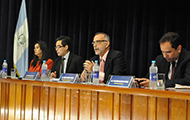
 Guatemala, February 28, 2012. Within the framework of the forum recently organized by Alternativa Independiente, Francisco Javier Dall'Anese Ruiz (head of the International Commission against Impunity in Guatemala) and various guests discussed "Organized crime and the justice system".
Guatemala, February 28, 2012. Within the framework of the forum recently organized by Alternativa Independiente, Francisco Javier Dall'Anese Ruiz (head of the International Commission against Impunity in Guatemala) and various guests discussed "Organized crime and the justice system".